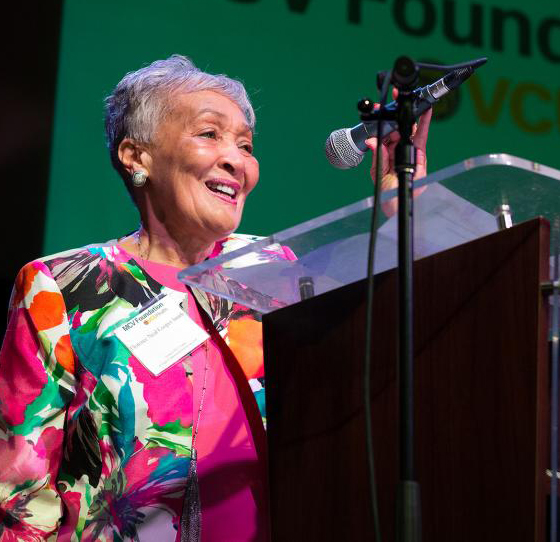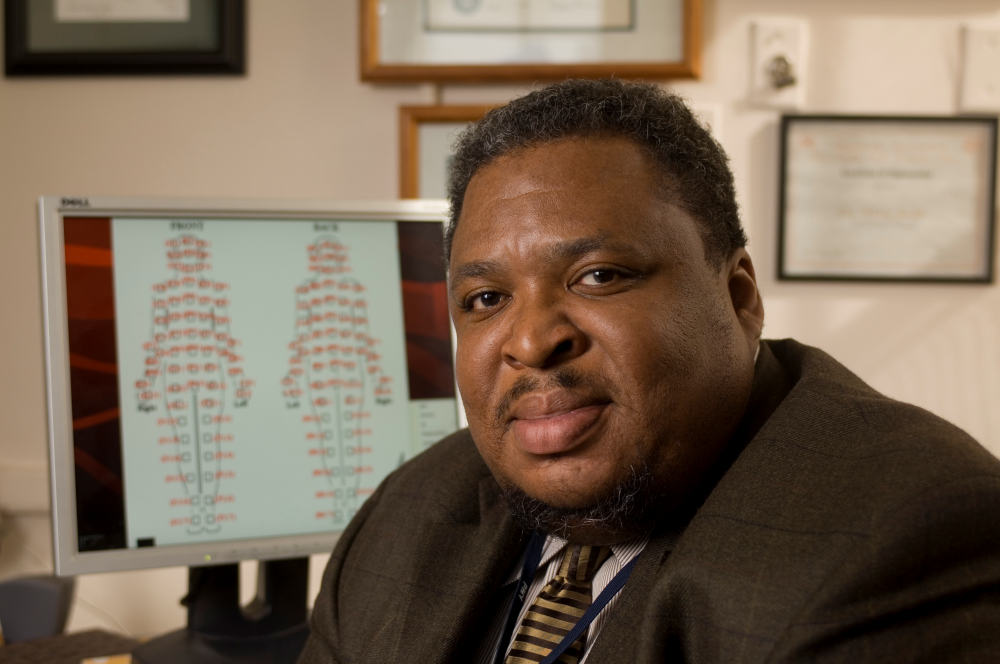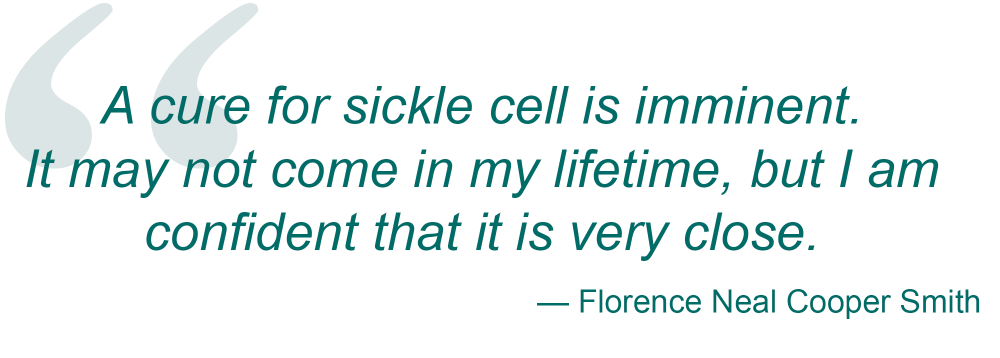Guaranteeing a Future of Sickle Cell Treatment, Research and Outreach on the MCV Campus
This September marks the 35th annual National Sickle Cell Awareness Month. In the 1960s, the notion of a national month of awareness for sickle cell disease wasn’t something Florence Neal Cooper Smith could have foreseen.
At the time, she was fighting an uphill battle for advocacy and awareness of the disease here in Richmond. Her groundbreaking work made her a leader in the field, and included co-founding the Virginia Sickle Cell Anemia Awareness Program at the Medical College of Virginia, which became one of the original 19 federally-funded sickle cell anemia screening clinics, and the first in the state, in 1972.
Sickle cell disease is a genetic blood disorder that affects 70,000–100,000 Americans, the majority of whom are African American or Hispanic. People who have it produce abnormal red blood cells that can block blood vessels, leading to organ damage, severe episodes of pain and other life-long complications. In addition, about 2.5 million Americans carry the sickle cell trait, which usually does not cause symptoms, but means those who carry it could pass along sickle cell disease to their children.
Growing the Professorship

Today on the MCV Campus, we have an instrument through which donors can directly support continued advancements in treatment and research of sickle cell disease, leading to reduced numbers of those who suffer, and hopefully even to a cure. This tool is the Florence Neal Cooper Smith Professorship at the VCU School of Medicine, named in honor of Florence for her pioneering work.
Wally Smith, M.D., has been the inaugural holder of the Florence Neal Cooper Smith Professorship since 2014. He is the scientific director of the VCU Health Center on Health Disparities and the director of the VCU Health Adult Sickle Cell Program.
A nationally recognized expert on sickle cell, Dr. Smith is nearing the end of a five-year, $3.1 million grant from the National Heart, Lung and Blood Institute for research in overcoming barriers to healthcare for adults with sickle cell disease.
One of his project’s goals is to utilize trained individuals who guide patients through healthcare systems — known as patient navigators — to lead more sickle cell patients to the care of sickle cell specialists. This is important because not being under the care of a specialist can be fatal for sickle cell patients.
Another goal, which also utilizes patient navigators, is to educate and reach out to physicians to improve adherence to sickle cell drug delivery. This is important because many physicians may not be fully familiar with sickle cell drugs, and unfamiliarity can lead to inconsistent determination of eligibility and dosage.

Dr. Smith said at the time he received the grant that the project would be critically important in demonstrating the feasibility of a community-based strategy to assist vulnerable sickle cell disease adults in obtaining specialty care. Leading these adults to specialty care, he said, likely would prolong their lives, and the process used in his project to get them to that care could be a model for others to adopt.
This month, as the project draws closer to its conclusion, Dr. Smith said the results are highly anticipated by hospitals, managed care companies and communities that want to use navigators to improve patients’ health.
This is the type of research that Florence envisions the professorship in her name will facilitate for years to come.
“The professorship is about better methods for treatment and care,” she said. “I want 100,000 people who are suffering every day to find better options for their care management needs and their social needs. I want to see us cure this disease so parents don’t have to worry about their children having it.”
To advance this type of research in sickle cell treatment and patient care, the MCV Foundation and its partners are working toward raising $1 million to make the professorship an endowed chair. Endowments are extremely important to the quality of our campus programs, as they provide long-term financial stability regardless of government funding and changes in the economy. To learn more about endowments, click here.
Fundraising efforts have raised $330,000 so far to establish the endowed chair, and Dr. Smith said the timing for these efforts is important.
“There is now a national groundswell to cure sickle cell disease that is similar to what we have seen with AIDS and cystic fibrosis,” he said. “The professorship could not have come at a better time.”
The fight to end suffering through better treatment and a cure for sickle cell has come a long way since the 1960s, and it is important to tens of thousands of people — and to generations to come — that the momentum continues. Join the fight and learn more about how the Florence Neal Cooper Smith Professorship can strengthen the momentum.



